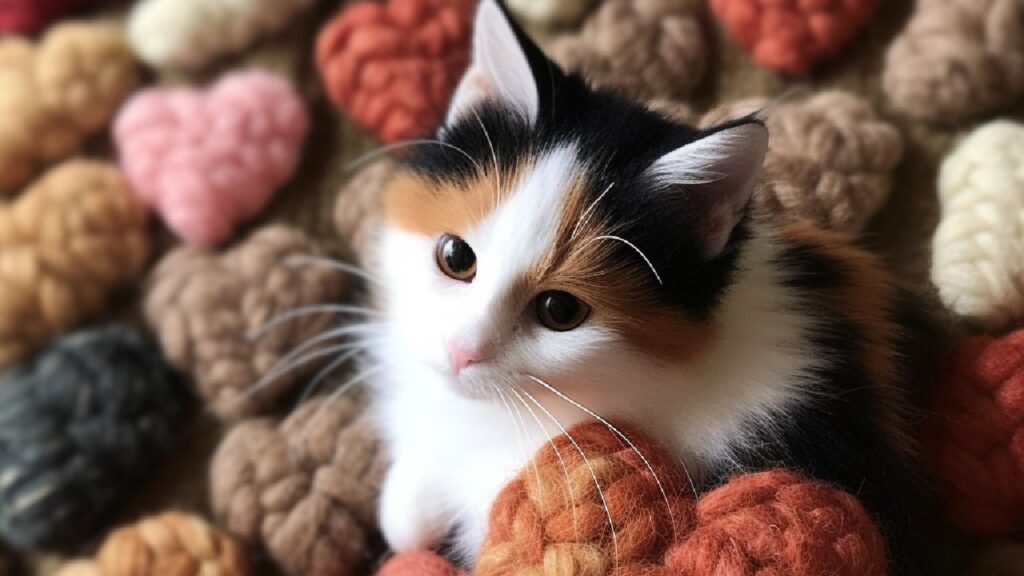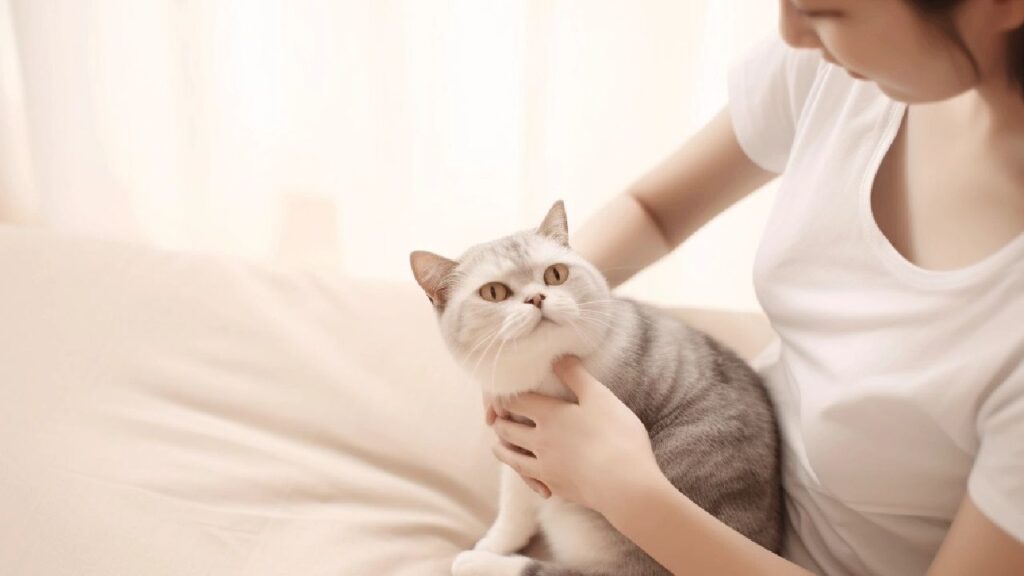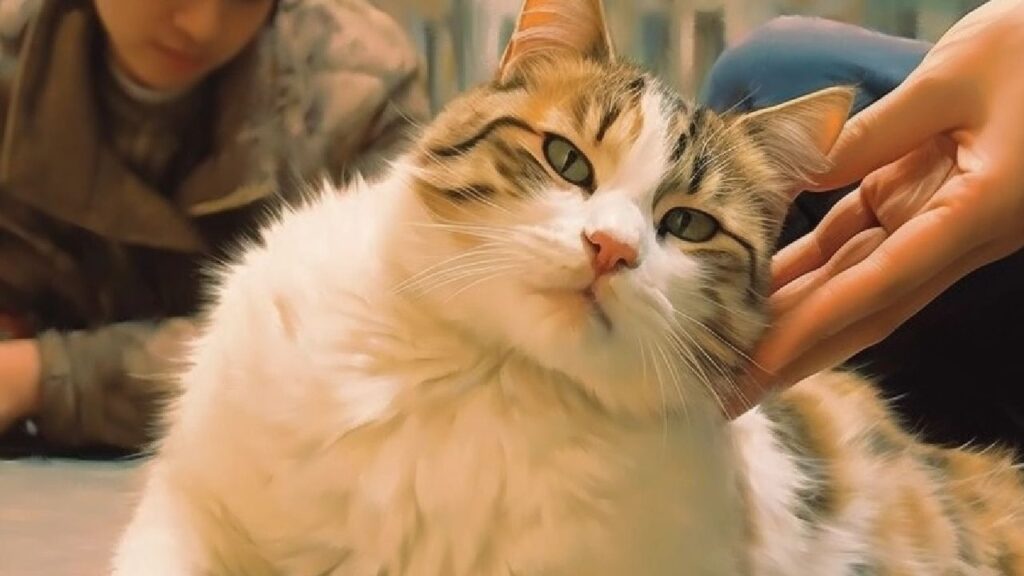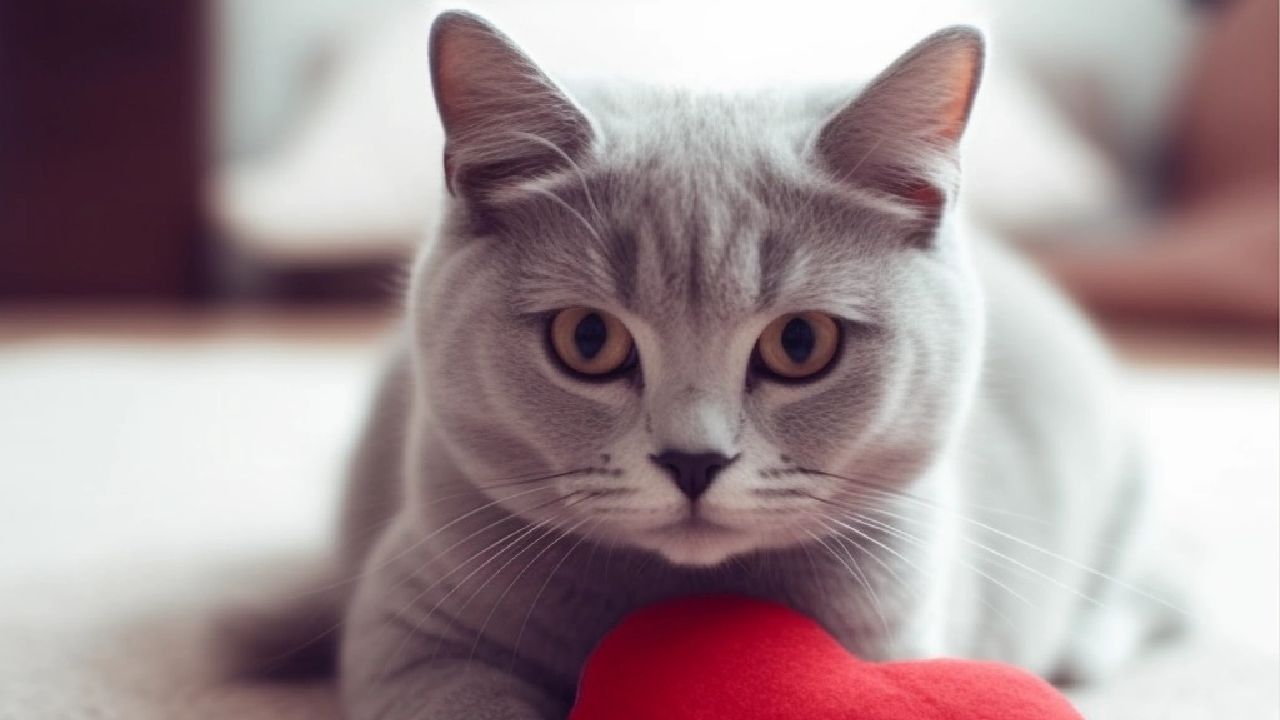Cats are mysterious and captivating creatures, uniquely entwined in our lives. Ever wondered about their heart health? This article explores cat heart rates, normal ranges, monitoring, and potential issues.
What is the Normal Heart Rate for a Cat?
Generally speaking, a regular heart rate for a healthy adult cat typically falls within the range of 140 to 220 beats per minute (bpm). Kittens and younger cats tend to have faster heart rates than older cats.
A kitten’s heart rate can be as high as 220 to 260 bpm, but it gradually decreases to the adult range as they mature. It’s essential to note that a cat’s heart rate can vary based on age, breed, activity level, and even the environment.

Also, individual variations may occur while these numbers serve as a guideline. Some cats naturally have higher or lower heart rates, and that’s perfectly normal for them. To determine what’s normal for your specific cat, establish a baseline when your furry friend is relaxed and not amid a spirited play session.
How to Check Your Cat’s Heart Rate
Checking your cat’s heart rate isn’t rocket science but requires patience and practice. Here’s a simple step-by-step guide to help you get started:
Find a Quiet Time
Choose a moment when your cat is calm and relaxed, preferably when lounging or resting. This will make it easier to get an accurate reading.
Locate the Heartbeat
Place your palm on the left side of your cat’s chest, just behind the front leg. You should be able to feel a slight pulsation.
Count the Beats
Using a timer or counting in your head, count the number of beats you feel in 15 seconds. Then, multiply that number by four to get the heart rate per minute (bpm). For example, if you count 10 beats in 15 seconds, your cat’s heart rate is 40 bpm (10 x 4).
Repeat for Accuracy
To ensure accuracy, repeat this process and calculate the average heart rate. This will provide a more reliable reading, especially if your cat is fidgety.

Causes of Abnormal Heart Rate in Cats
Now that we know what’s considered a normal heart rate for cats let’s explore why a cat’s heart rate might deviate from this range.
1. Heart Rate Too High (Tachycardia)
- Stress and Anxiety: Cats are sensitive creatures; just like us, they can experience stress and anxiety. If your cat is in a high-stress situation or feeling threatened, their heart rate can spike.
- Fever: Elevated body temperature, often caused by an underlying illness or infection, can lead to a higher heart rate.
- Overexertion: Cats love to play, but excessive exercise or prolonged physical activity can result in a temporarily elevated heart rate.
- Heart Disease: Various heart conditions, such as hypertrophic cardiomyopathy (a common feline heart disease), can increase heart rate as the heart struggles to pump blood effectively.
2. Heart Rate Too Low (Bradycardia)
- Hypothermia: When a cat’s body temperature drops significantly, as in cases of severe hypothermia, it can slow down their heart rate.
- Certain Medications: Some medications, particularly those used to treat heart conditions, may cause bradycardia as a side effect.
- Feline Sinus Arrest: This is a rare condition where a cat’s heart momentarily stops beating due to issues with the heart’s electrical system.
Monitoring your cat’s heart rate regularly is essential, especially if you notice any sudden or persistent changes. If you suspect an issue, don’t hesitate to consult your veterinarian, as early detection and treatment are critical in managing heart-related problems.

The Beat Goes On Caring for Your Cat’s Heart Health
Maintaining your cat’s heart health isn’t just about monitoring their heart rate. There are several proactive steps you can take to ensure that your feline companion’s ticker keeps purring smoothly:
1. Regular Vet Check-ups
Schedule regular check-ups with your veterinarian, at least once a year, to keep tabs on your cat’s overall health, including their heart.
2. Balanced Diet
Feed your cat a balanced, high-quality diet that supports their nutritional needs. Obesity can strain the heart, so maintaining a healthy weight is essential.
3. Exercise
Encourage regular exercise through interactive play. This helps keep your cat’s cardiovascular system in good shape and can prevent obesity.
4. Stress Management
Cats can be sensitive to changes in their environment. Create a stress-free living space, and be mindful of any changes that might cause anxiety.
5. Dental Care
Oral health is linked to heart health in cats. Regularly brush your cat’s teeth and provide dental treats or toys to help prevent dental issues.
6. Parasite Control
Ensure your cat is protected against common parasites like fleas and ticks, as some parasites can carry diseases that affect the heart.
7. Medication Compliance
If your cat is on any medications for heart-related issues or other conditions, follow your veterinarian’s instructions carefully.
Conclusion
Understanding your cat’s normal heart rate is crucial for their well-being. Individual variations exist, while the typical range for a cat’s heart rate is 140 to 220 bpm. Regularly monitoring your cat’s heart rate and watching for abnormalities is essential.
Whether your cat’s heart rate is too high (tachycardia) or too low (bradycardia), it’s vital to identify the underlying causes and seek prompt veterinary care when needed.
Early detection and intervention can make a significant difference in managing heart-related issues and ensuring your furry companion’s ongoing health and happiness.

FAQs
Can a cat’s heart rate change with age?
Yes, a cat’s heart rate can change with age. Kittens typically have faster heart rates, gradually decreasing as they mature into adults.
What’s the ideal heart rate for a senior cat?
For senior cats, a heart rate slightly lower than the adult range (around 140-180 bpm) is often considered normal, but it varies depending on the cat’s health.
Can I use a pet fitness tracker to monitor my cat’s heart rate?
Pet fitness trackers can be handy for monitoring your cat’s heart rate over time, helping you detect irregularities early.
Are confident cat breeds more prone to heart-related issues?
Yes, some breeds, like Maine Coons, are more susceptible to heart diseases, making regular heart rate monitoring even more essential.
Can stress lead to long-term heart rate changes in cats?
While stress can temporarily increase a cat’s heart rate, chronic stress may contribute to long-term health issues, so managing stress is vital.
What are the signs of feline tachycardia (high heart rate)?
Signs of tachycardia in cats may include restlessness, panting, and shallow breathing. If you notice these signs, consult your vet.
Is there a link between dental health and heart health in cats?
Yes, poor dental health in cats can lead to heart problems. Regular dental care can help prevent dental issues that affect the heart.






I’ve been monitoring my cat’s heart rate lately, and it’s such a relief to read this article and know what’s considered normal. It’s all about keeping our feline friends healthy. Thanks for the guidance, it’s been super helpful! 🐱❤️💓